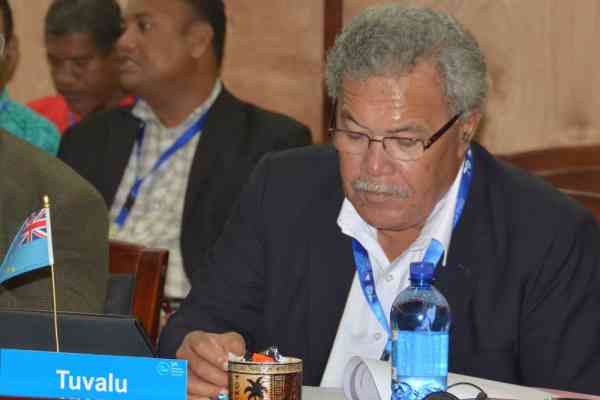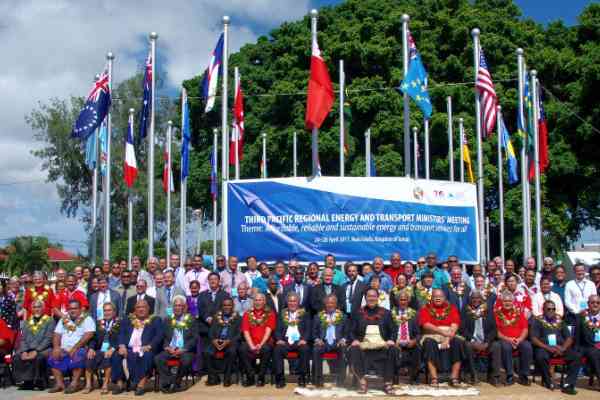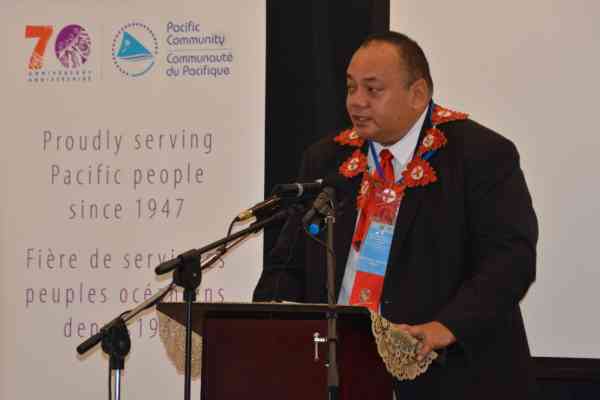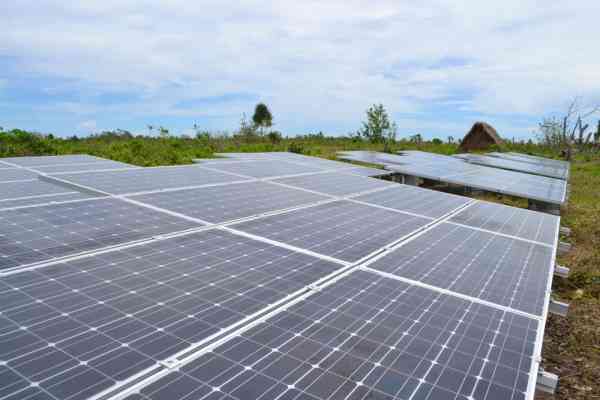Fourth pacific regional energy and transport ministers’ meeting
Introductory remarks by the Director-General of the Pacific Community (SPC)
Apia, Samoa, 18-20 September 2019
Theme: Sustainable Energy and Transport Services for the Blue Pacific
Honourable Tuilaepa Dr. Sailele Aiono , Prime Minister of Samoa
Honourable Ministers and Heads of Delegations of SPC country and territory members
Excellencies, Members of the Diplomatic Corps
Representatives of Development Partners and international and regional organisations
Colleagues
Ladies and Gentlemen
It is a great honour for me to provide introductory remarks at the opening of this Fourth Pacific Regional Energy and Transport Ministers Meeting.
Prime Minister, I would like to express my personal gratitude to you and your government for partnering with SPC to organise this high-level meeting focusing on energy and transport in the Pacific and collectively commit and work towards “Sustainable Energy and Transport Services for the Blue Pacific”.
Associating the sustainability of the energy and transport services to the Blue Pacific under this week’s theme is a great opportunity for SPC to reflect on our work and the development trends we have seen across the Pacific.
At SPC, we went through major reforms since the 2017 ministerial meeting that are changing our way of deliver services towards integrated and multi-sectoral, multi-disciplinary programming.
At the regional level, SPC is adapting a fast-changing environment building on integration, across the Pacific, of the SAMOA Pathway and the Framework for Pacific Regionalism through the Blue Pacific narrative. We are also working towards greater integration on how we respond to the 2030 Agenda for Sustainable Development and ensuring SPC objectives and SDGs are interconnected and complementary. SPC will continue to be a leader in scientific research and technical innovations, and use our experience and knowledge of the Pacific to support our members’ development objectives.
How this translates in our work on the energy and transport sectors?
The Pacific Community Centre for Ocean Science (PCCOS) is now operational. Our vision is to provide excellence in ocean science, knowledge and innovation and be the platform for coordination of this ocean science to assist the Pacific Community in achieving SDGs and contributing to the Blue Pacific vision.
It is completely integrated with the work of the Maritime Technology Cooperation Centre in the Pacific hosted by SPC in Fiji with now an office in Samoa. It also integrates the work of the Pacific Centre for Renewable Energy and Energy Efficiency (PCREEE) hosted by SPC in Tonga in collaboration with its government. We provide excellence in services for the uptake of low-carbon technologies and renewable energy by both the energy and maritime transport sectors.
Lastly, we have established the Geoscience Energy and Maritime Division within the SPC Regional Office in Fiji that offers a robust operational and administrative structure for the energy and maritime programmes and integrates the two centres. It has been a long and challenging journey for us but the first results are at the level of our initial expectations. You will have the opportunity to acknowledge them and help us continue to improve our services.
Both the Energy and Transport sectors in the Pacific are now engaged in low-carbon development as prioritised by the Framework for Resilient Development in the Pacific. Improving energy efficiency and investing in new technologies are imperatives. With MTCC-Pacific and PCREEE, we are specifically working with the private sector to build capacity and accompany it in the shift to low-carbon futures. This meeting is the opportunity for you to discuss your vision of the energy and transport sectors in 2030 and 2050 and decide on measures and targets.
The Framework for Action on Energy Security in the Pacific (FAESP) will come to an end next year and work is already underway to draft the new regional guiding framework. There is no doubt that the following developments will shape the new framework and the energy priorities of the region:
- The COP 24 rulebook calls for a carbon emission reduction of 42% by 2030 and 0 net emissions by 2050 is order to keep global temperature below 2oC and ultimately to 1.5ºC above the average temperature before the induction;
- The mid-term review of the SAMOA Pathway and the Progress Report on the SDGs which both highlighted the need for urgent and enhanced support to all initiatives towards promotion of renewable and sustainable energy in the Pacific SIDS; and
- The UN Secretary-General’s recent visit to the Pacific where he challenged Leaders to phase out subsidies on fossil fuel, tax carbon not people and put a moratorium on new coal fired plants.
For transport, there is an important question about the Framework for Action on Transport Services that expires at the end of 2020. Except for issues that are within the mandate of the Pacific Aviation Safety Office (PASO), other issues related to air connectivity for instance are not adequately included in the regional agenda. Honourable Ministers, we rely on your wise counsel to direct us towards better integration of all transport issues and have a balanced approach towards safety, security, capacity development, technology and energy, pollution prevention, guided by ambitious targets and clear vision.
More specifically for the maritime sector, huge progress have been made in operationalizing the Pacific MoU for domestic ship safety and in shaping the Pacific Blue Shipping Partnership and a vision for Pacific Ports 2030-2050 working toward targets of 40% greenhouse gas emission reduction by 2030 and 0% by 2050. The latest developments for gender equality in maritime are also impressive.
Of course, none of this work would be possible without our partners. May I seize the opportunity here to thank New Zealand, the European Union, the United Nations Industrial Development Organization (UNIDO), the International Maritime Organization (IMO) and the International Foundation for Aids to Navigation for their support both as funders and as partners. We also work closely with CROP partners to complement each other work and exchange expertise. But SPC would be nothing without its staff that makes SPC what it is and in return are prepared by SPC to be the future experts and leaders of your countries.
SPC remains on your side to achieve the development aspiration and ambition leaving no one behind. I wish you all the best in your deliberations for the next three days. Thank you.



